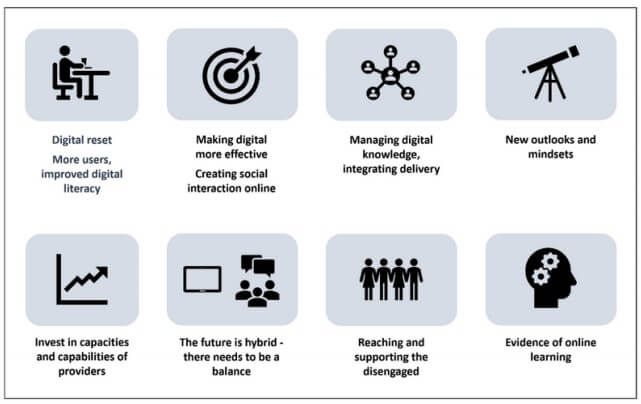
COVID-19 has disrupted the normal way information and advice is shared and accessed in the Agricultural Knowledge and Innovation System (AKIS); it has also brought new opportunities for the use of digital media and tools.
Researchers from the Countryside and Community Research Institute (CCRI) and ADAS consulted a range of farmers and other stakeholders (advice providers, knowledge exchange organisations, agri-tech businesses, intermediaries, policy makers) about their experiences during Covid-19 restrictions.
Julie Ingram the report’s lead author said “We found a high level of adaptability across the AKIS but also some challenges”.
Increased digital provision has meant that a greater number and diversity of people are accessing and engaging with knowledge exchange activities than before, allowing greater reach, efficient use of resources and flexible planning for both farmers and providers. There are multiple examples of creative hybrid advisory activities (combining digital with face to face). Digital literacy and confidence have been enhancedfor many,while stakeholders report a greater sense of connectedness.
However, there have been challenges. The majority of respondents miss the social interaction, as digital tools and media cannot replicate the peer-to-peer learning and social benefits that face-to-face events offer. Online delivery represents a barrier for many farmers due to poor broadband connectivity, lack of confidence or unwillingness to engage, leading to exclusion and isolation. Digital delivery also brings concern about credible and trusted information and additional fragmentation in the AKIS from multiple sources and platforms. It is demanding on organisations staff capacities and capabilities, and the need to professionalise and upskill is apparent.
COVID-19 has offered the chance for many people to reappraise the way they interact with the AKIS and some describe a ‘digital re-set’. There is universal agreement that future delivery will be balanced between face-to-face and online provision, with current creative hybrid adaptations (non-synchronous) serving as exemplars. This will require flexibility and resources to suit the audience’s needs and context. It will be important to pay particular attention to potential inequalities as well as opportunities.
This work forms the first part of an Innovate-UK project seeking to develop an online solution (Farm-PEP) to help connect knowledge exchange in agriculture. Daniel Kindred, leader of the Farm-PEP project, said “The study into the impacts of Covid-19 on KE has been invaluable in setting out which direction we should take. We’ve now agreed a Challenge Statement based on the findings from the work and are beginning the co-design process”.
The full reports from the study are available here:
https://www.yen.adas.co.uk/resources/farm-pep-impact-covid-19-knowledge-exchange-survey-interviews-workshop-reports.
